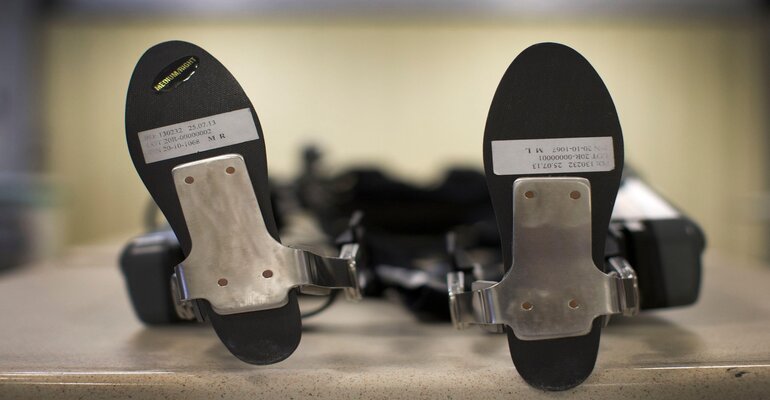German Court to Classify Exoskeleton Devices for Use in Lower Extremity Disabilities
The court decision could bring the ability to stand and walk, a once only imagined technology, to more people with spinal cord injuries.

The German Federal Social Court will soon decide whether an exoskeleton medical device should be classified as directly or indirectly compensating for the lost function of individuals with spinal cord injuries (SCI) or paraplegia. The announcement comes from ReWalk Robotics, a leading manufacturer of robotic medical technology for people with lower extremity disabilities, whose ReWalk exoskeleton will be affected by the court’s decision.
ReWalk is a wearable robotic exoskeleton that provides powered hip and knee motion to enable individuals with SCI to stand upright, walk, turn, and climb and descend stairs. The system provides user-initiated mobility through a wearable brace support that is light and battery-operated, a computer-based control system, and motion sensors. In the brace, there are motors at the hip and knee joints that use subtle changes in a user’s center of gravity to initiate movement. For instance, a forward tilt of the upper body is sensed by ReWalk, which initiates a step. Repeated body shifting then generates a sequence of steps that mimic a functional natural leg gait.
ReWalk accommodates individuals 5’3” to 6’3” tall and up to 220lbs, according to the company. Additional prerequisites for using the device include the ability of an individual to use their hands and shoulders to support crutches or a walker, healthy bone density, a skeleton that doesn’t have any fractures, the ability to stand using a device such as EasyStand, and generally good health.
The court’s decision on exoskeleton medical aids will establish a new national German policy and apply to all citizens covered by Statutory Health Insurance (SHI). Establishing the legal classification for exoskeletons will provide guidance for patients and insurance companies and set a reliable legal basis for the application process when seeking an exoskeleton.
The hearing is currently scheduled for Nov. 10, 2022.
"The multitude of benefits that patients experience from regaining the ability to stand and walk again with the use of a ReWalk exoskeleton have made it clear that restoring walking function after spinal cord injury is a basic need,” said Larry Jasinski, CEO of ReWalk. “The German healthcare system has led the way in its adoption of exoskeletons for spinal cord injured individuals. By establishing a clear classification for exoskeleton medical aids, the court will provide important, national guidance to payers and patients in the application process for care and create a pathway to providing access to this innovative technology for all eligible users in Germany through an established supply process. We look forward to the upcoming decision.”
About the Author(s)
You May Also Like



.png?width=300&auto=webp&quality=80&disable=upscale)
